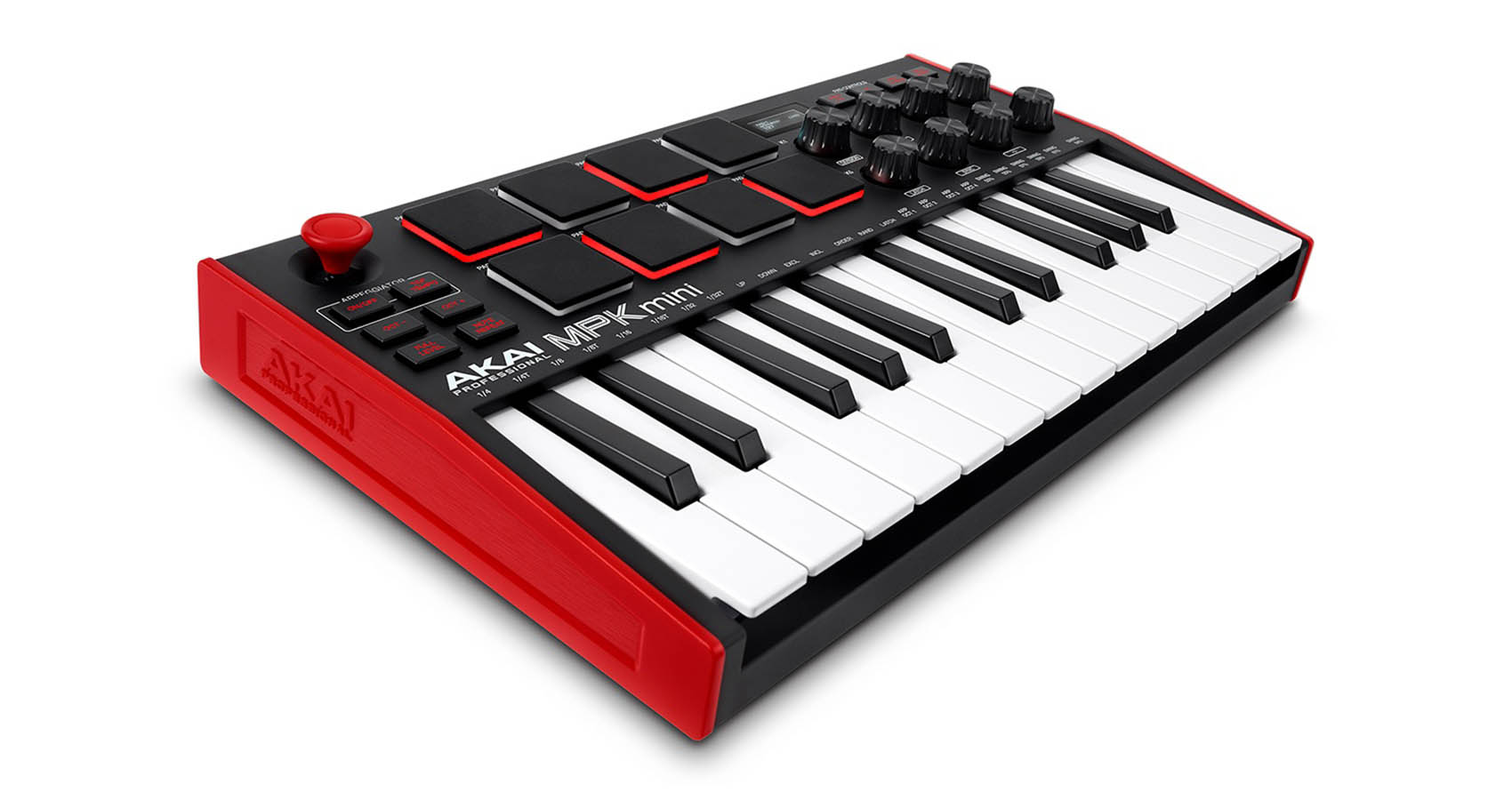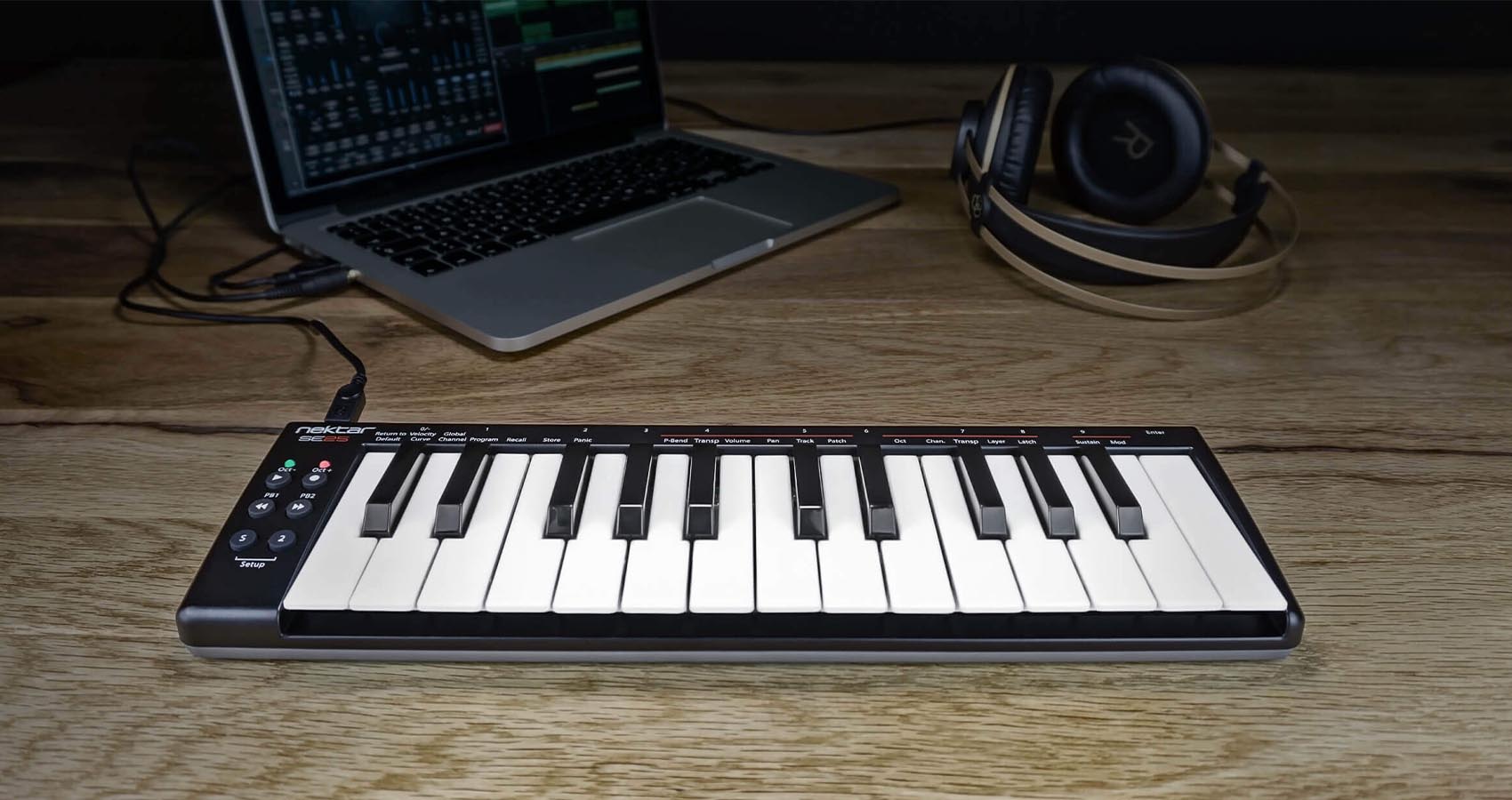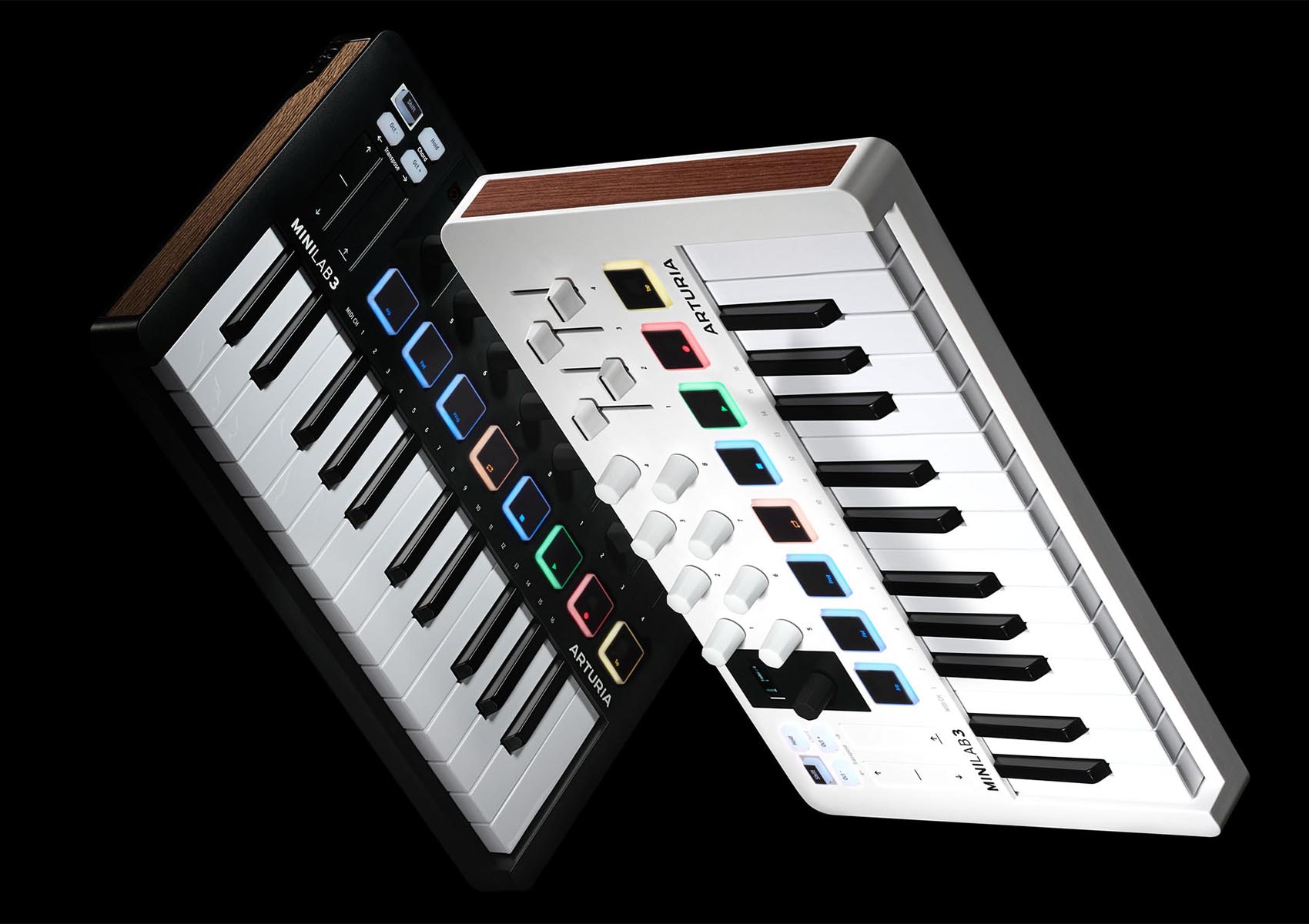Best Keyboards For Music Production
May 02, 2023
Getting the right tools is a vital step toward reaching your creative goals in music production.
Among the essential equipment for creating music, a MIDI keyboard is arguably the most important device you want to get right after opting for a decent computer. If you want to record vocals professionally, an audio interface is another thing you want to invest in.
Standing for Musical Instrument Digital Interface, MIDI keyboards offer pads and keys that allow you to control different virtual instruments in your digital audio workstation (DAW).
The perfect MIDI keyboard can differ depending on your intentions, music production skills, and budget.
Let’s take a look at some of the best MIDI keyboards you can purchase in 2023.
Most Portable MIDI Keyboard: Akai MPK Mini
If you make music on the go and want a mobile setup always with you, the Akai MPK Mini can fulfill many of your music production needs in a compact form factor.
The Akai MPK Mini comes with 25 mini piano keys, eight sturdy pads, eight continuous rotary knobs, and a thumb stick for modulation/pitch shift.
The A/B selector button allows you to switch between two sets of pads, so you can technically route 16 different sounds to them. On the back, it has a USB and a sustain pedal input.
The MPK Mini features a small OLED display that provides real-time feedback about MIDI channels, arpeggiator settings, and other helpful information. Moreover, The MPK Mini has a solid build quality, meaning that it can take a fair amount of abuse during transportation.
The Akai MPK Mini is one of the MIDI keyboards I use in my studio. You can find one on Amazon or SweetWater for around $100.
I first bought my Akai MPK while I was living in Berlin. I needed a midi controller that was study and good for me to take on the road as I performed live with it.
Most Budget-friendly: Nektar SE25
The Nektar SE25 is one of the most affordable MIDI keyboards on the market. For Around $50, you can get plenty of functionality in a simple and compact design.
It offers two octaves (25 piano keys), which should be enough for starters.
Similar to the Akai MPK Mini, you can connect it to your computer via a USB cable. However, this MIDI controller does not offer input for a sustain pedal. That could be a game breaker for you but as you can imagine, it's not a MIDI keyboard for playing piano or chords with long sustaining notes.
Also, the Nektar SE25’s dimensions make it a portable MIDI keyboard. But unlike the MPK Mini, it does not feature pads or a display. So, your tools are more limited when it comes to creating music with the SE25.
The Nektar SE25 is a Midi controller keyboard that stands true behind, "what you see is what you get". It's not trying to do anything that it can't. It's simple, basic, and cheap. I always have one laying around the studio just in case I need it.
Practical For Beginners: Arturia MiniLab MK3
Arturia is known for its high-quality software and hardware. If you’re looking for an affordable MIDI keyboard that is well-built, practical, and comes with a ton of useful software, the MiniLab MK3 should definitely be on your list.
The keys and pads in the MiniLab MK3 are responsive and offer a satisfying level of tactile feedback, and the rotary knobs are smooth and precise. Updated for the MK3, Arturia’s MiniLab offers four faders to adjust different parameters, too.
The MiniLab MK3’s USB-C connectivity makes connecting the keyboard to newer laptops easier.
Another impressive aspect of the Arturia MiniLab is its comprehensive software bundle that includes Analog Lab Lite, Ableton Live Lite, and various other virtual instruments and effects. Perfect for beginners who want to experiment with different sound libraries or even another DAW like Ableton Lite. However, my recommendation would be Logic Pro!
The Arturia MiniLab MK3 goes for around $110 on Amazon.
Best 49-Key Keyboard For Bedroom Studio: Arturia KeyLab 49
If you’re looking for a long-lasting, practical MIDI keyboard, the Arturia KeyLab 49 can be an excellent addition to your home studio equipment.
In many ways, the KeyLab 49 is similar to the MiniLab MK3; high-quality keys, sturdy pads, and touch-sensitive knobs. The 49-note piano key set gives you much more room to play around and create complex melodies.
This is my go to midi keyboard that I use on a regular basis. I have it sit directly on top of my studio desk because I find myself using it regularly to audition sounds or quickly record ideas directly into Logic Pro. I also like the dials and fades that come with Keylab 49 because I use it when I automate my delays and reverbs.
What’s more, it comes with Analog Lab V, a virtual instrument that offers over 6,000 synthesizers. Analog Lab V can be used as a standalone software, and as a third-party VST you can install on Logic Pro. I use Analog Lab V as one of my go to sound libraries for virtual instruments too. I love their models of synth classics like the Juno-6 or the Moog Mini.
I’ve used the Arturia KeyLab 49 in many of my songs and productions and I can speak very highly of it's quality. You can see it on my desk in many of my most recent YouTube videos.
You can find one on Amazon or SweetWater for about $210.
Best 61-Key MIDI Keyboard: Nektar Panorama P6
For more advanced users, I highly recommend going for a Nektar Panorama P6.
Besides the exquisite design, this MIDI keyboard offers many qualities that make it an excellent, easy-to-use gear for music producers.
The 61-note semi-weighted keyboard features Aftertouch, giving the Panamera P6 a responsive feel. If you’re a piano player, you’ll appreciate the action on this keyboard.
The faders on this MIDI are motorized, which is a nice touch for hands-on mixing and using automation tools.
The Panamera P6 is designed to work seamlessly with different DAWs, including Logic Pro, Cubase, and Ableton. It comes with several keys that you can map to your DAW and control most of the critical parameters without touching your computer.
This gives you a lot of space for customization to make the keyboard work the way you want it based on your workflow.
On Amazon, the Nektar Panorama P6 comes with a price tag around the $500 mark. However, the quality can speak for itself with regards to it's high price.
Best 88-Key MIDI For Pros: Native Instruments Komplete Kontrol S88
Last but not least, the Native Instruments Komplete Kontrol S88 is designed for professional musicians, producers, and composers looking for a high-quality MIDI controller for hands-on control over their virtual instruments.
One of the advantages of this keyboard is its fully-weighted hammer-action mechanism that offers a realistic and responsive playing experience. The sensitivity of S88’s keys provides a substantial level of expression for pianists and keyboardists.
Other exciting aspects of the S88 include its advanced arpeggiator and chord mode, allowing you to create complex and dynamic musical patterns easily.
Like any other top-of-the-line MIDI keyboard, the S88 comes with a range of knobs and buttons, allowing you to control different parameters of your virtual instruments. However, the keyboard doesn’t feature any touch-sensitive pads.
The Native Instruments Komplete Kontrol S88 keyboard does not come cheap, but offers exceptional price tag value. You can find one on SweetWater for around $1,100.
I can definitely recommend the Komplete Kontrol and I've thought about getting one myself. However, to me, it's too big for my workflow. I really like having a shorter midi keyboard directly on my desk. I don't enjoy the keyboard try underneath my desk. This is just a personal workflow that I've built over my years as a music producer.
Final Thoughts On Getting A MIDI Keyboard
With all the different brands and options on the market, opting for a keyboard for music production can be tricky.
If you’ve just started producing music, I suggest not going overboard with a pricey MIDI keyboard controller. Get yourself an easy-to-use model to avoid feeling overwhelmed by all the complexities of advanced options. Once you’ve established what you want to use a MIDI keyboard for, you can upgrade to a better one.
If you need more help with gear recommendations or you're looking to level up your songwriting, mixing, or music production, I suggesting getting my free 6 pillars on learning Logic Pro faster.













